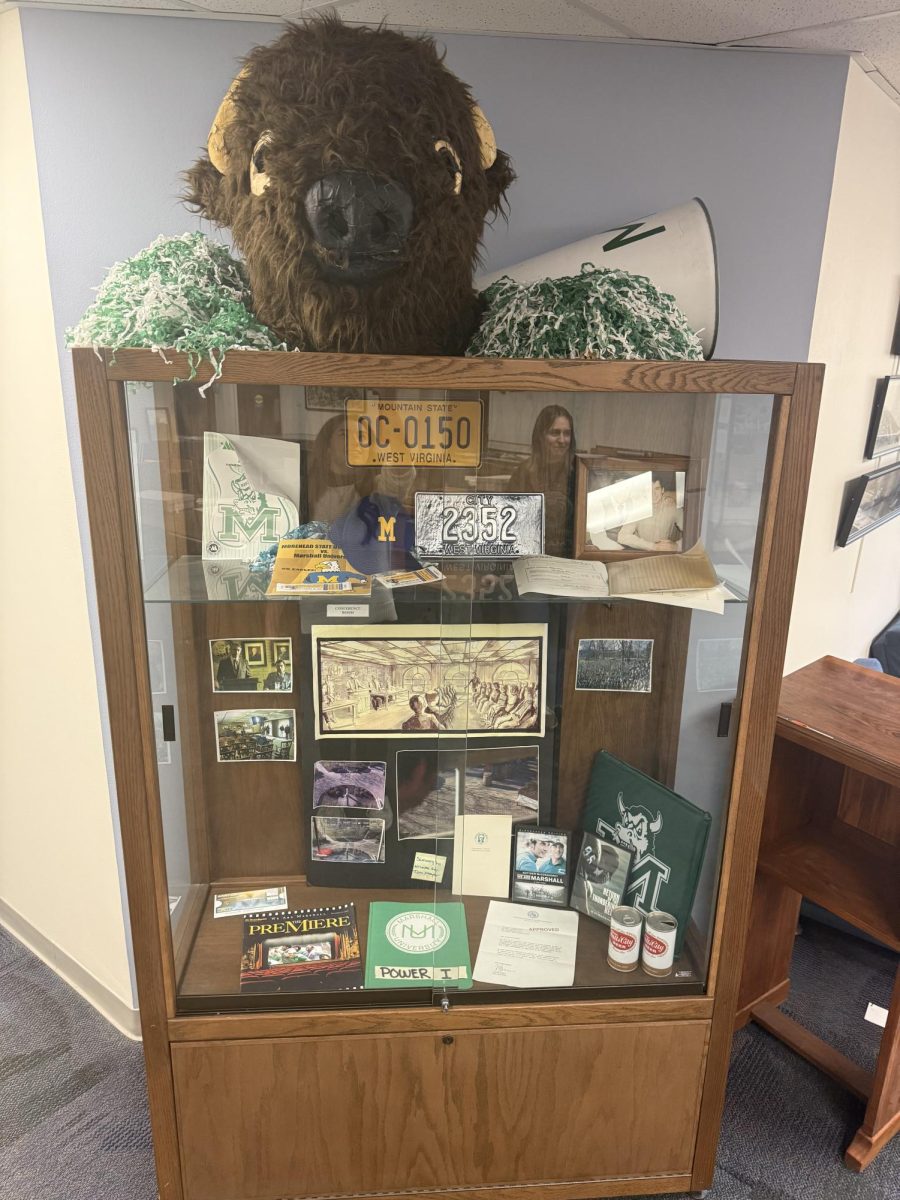Louisville Professor Lectures on Animal’s Role in Oppression
April 12, 2022
How animals have historically played a role in systems of oppression will be discussed by a University of Louisville professor when he visits Marshall on Friday in Harris Hall.
“One of the aspects that I will invite the audience to consider is are we, as humans, the only protagonists in the historical narrative,” Dr. Charlton W. Yingling said. “I think one of the major contributions of these projects is to focus on non-human actors—particularly animals—who were also significantly involved wittingly or unwittingly—mostly unwittingly—in these kinds of major processes that humans typically focus upon only themselves.”
“So, the grand sweep of this talk will talk about the rise of empires and the rise of slavery particularly in the Americas, focused on the Caribbean as an epicenter of that process,” Yingling said.
Yingling said that cattle played a very integral part during the colonization of the Americas.
“They allowed for the colonization of new terrains,” Yingling said. “They also went feral. They ran away. They resisted captivity in some ways and drew colonizing forces into the interiors of islands that previously had not been explored.”
“So why does that matter?” Yingling asked. “The way that the English became involved in colonizing Jamaica, the way that the French became involved in colonizing Saint Domingue—which eventually became Hatti—would not really have happened without those processes…”
The title of Yingling’s lecture is “Animal Actions, Human Reactions: Writing a Revolutionary Caribbean and Beyond.” The lecture will deal with the history of slavery in the Caribbean—specifically in Hatti.
“The rise of plantation economies in the Caribbean—of all these horrific and extremely profitable locations the place that was probably the most profitable of all is what eventually became Hatti,” Yingling said.
“So, in thinking about ‘Writing a Revolutionary Caribbean,’ one of the most significant revolutions that occurred in the history of the world—was the only successful slave revolt—was the Hattian Revolution which went from 1791 to 1804,” Yingling said.
One recurring historical trend was the use of attack dogs to suppress revolts or protests.
“Within the revolution-Again, this is where another one of these aspects of animal agency appears,” Yingling said, “and that is because at the end of the revolution the French brought hundreds of attack dogs that had been specially trained
to attack runaway slaves in Cuba, ship them to Saint Domingue and then set them loose on the revolutionaries.”
“This was also a process that had previously occurred in Jamaica,” Yingling said. “The British had done the same thing. They purchased dogs from Cuba and sent them to Jamaica. Eventually this legend became extremely persuasive and planters of cotton and other commodities in the United States South began importing dogs from Cuba as well.”
“So, one of the aspects of expanding plantation economies in the United States South was partly possible because of dogs being ever-present to track, attack, intimidate, pursue and sometimes kill enslaved people which is utterly horrific,” Yingling said.
“So, through this path—moving through early colonization, animal agency, later colonization, dogs in particular—I then follow that path on through things like the Jim Crow era in the United States South: things like European empires that controlled Sub-Saharan Africa up until the mid-twentieth century where they used dogs in a similar way,” Yingling said.
“Talking about the Civil Rights era of the United States in which dogs were used to attack Civil Rights protesters and then questions about who gets to write the narrative for these animals themselves,” Yingling said.
“How they are incentivized, how they’ve been selectively bred and trained to perform in these roles and how human societies maybe have come to look the way that they do—particularly around things that are lingering from the colonial era like racism because of this very long mammalian path,” Yingling said.












